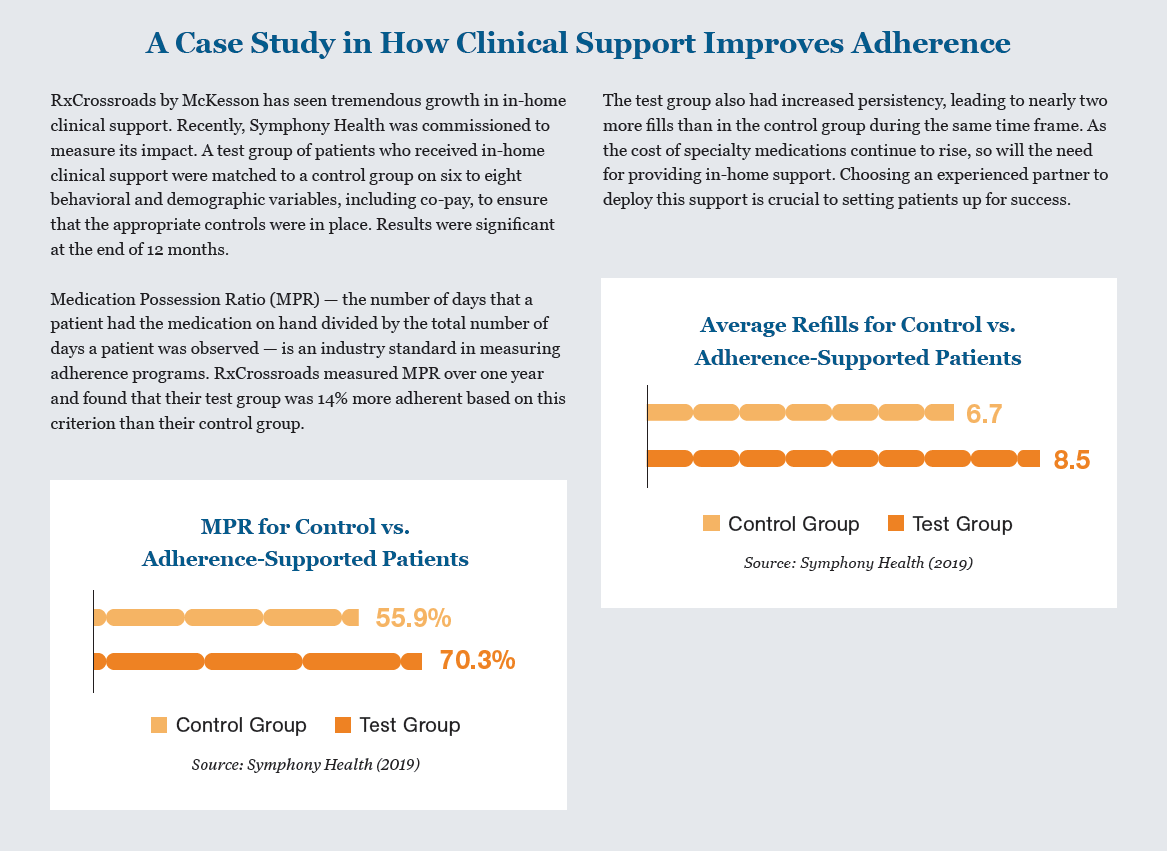When we think about the many facets of the healthcare ecosystem, we must keep patients at the center as our north star. Medication adherence is crucial to patient outcomes in value based care.
It’s commonly known that medication nonadherence is one of the costliest and most complex challenges facing the healthcare system today, and multilayered solutions are required to address it.
Often, patients can’t afford their therapy, can’t tolerate it or drop off simply because they don’t perceive that they are getting better. Ultimately, whatever the cause of nonadherence, and whatever the costs to other stakeholders in the system, it is the patient who suffers.
What if the root solution was something relatively simple — listening to patients?
Chronic disease patients, whose health issues tend to be long term, compounding and sometimes severe, are at the highest risk for nonadherence. In one survey of cancer patients, the findings of which were published in the American Journal of Managed Care
in 2012, 10% of patients stopped taking their medication, 7% did not fill their original prescription and 9% did not refill it. The top three reasons for nonadherence were side effects, a perceived lack of efficacy and the cost of the medication.1 Behavioral barriers can be easy to overlook next to the looming affordability crisis and more quantifiable clinical obstacles — but they may be the key. Understanding patients’ perceptions, personal challenges and knowledge of their diagnosis and medication regimen is crucial to helping them overcome adherence barriers.
Biopharma companies can support better outcomes and mitigate nonadherence in chronic disease patients by empowering patients to take ownership of their treatment journey through continued coaching and support.
Delivering Adherence Strategies That Enlighten, Engage and Support Patients
RxCrossroads by McKesson’s tailored adherence programs address specific needs and potential challenges to adherence with phone-based behavioral and clinical coaching, as well as in-home clinical support to identify and address potential nonadherence behaviors. These specialized teams are experts in adherence conversations and apply behavioral-based techniques to help support patients in handling challenges associated with their disease and treatment regimen.
Starting a new therapy can be overwhelming, particularly if injection is required, and the complexity is compounded for infused treatments. With the rising complexity of specialty therapy administration, the need to educate patients grows too. Often, patients who self-inject have challenges not only with the injection but with other barriers to getting started. Initial conversations may include discussing educational tools provided on behalf of the biopharma customer, such as a starter kit, which helps to set product expectations. Building an integrated patient support strategy across channels is a critical step for the patient to start off on the right foot.
Home health education can be a key strategy for augmenting education provided within the office around injection training and reassuring patients and caregivers through understanding personal challenges and connecting with approved resources. Phone and video chats also help educate new patients on their financial options and ensure they understand their care plan, dosing regimen and any expected side effects and outcomes of treatment. These ongoing two-way dialogues support continued adherence.
Enabling Smarter Adherence Programs with Data Analytics
Through one-on-one communications, active listening and intelligent data analysis, RxCrossroads teams are better able to predict, navigate and avert adherence challenges. Ultimately, these interactions enable predictive tools that deepen patient engagement by analyzing patient adherence risks based on numerous factors. What communication channel is most effective to reach a given patient? What time of day? What can we understand through their voice? What emotions are they experiencing?
Asking these questions won’t just help RxCrossroads build more efficient, smarter adherence programs. It will put the patient — as an individual, not as a data point — back at the center of what we are trying to accomplish with healthcare. And the patients will lead us to the answers.
A Case Study in How Clinical Support Improves Adherence
RxCrossroads by McKesson has seen tremendous growth in in-home clinical support. Recently, Symphony Health was commissioned to measure its impact. A test group of patients who received in-home clinical support were matched to a control group on six to eight behavioral and demographic variables, including co-pay, to ensure that the appropriate controls were in place. Results were significant at the end of 12 months.
Medication Possession Ratio (MPR) — the number of days that a patient had the medication on hand divided by the total number of days a patient was observed — is an industry standard in measuring adherence programs. RxCrossroads measured MPR over one year and found that their test group was 14% more adherent based on this criterion than their control group.
The test group also had increased persistency, leading to nearly two more fills than in the control group during the same time frame. As the cost of specialty medications continue to rise, so will the need for providing in-home support. Choosing an experienced partner to deploy this support is crucial to setting patients up for success.



Share
Post
Post
Email